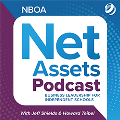Dec 1, 2020, 2:37 AM
(From the New York Times) Teaching during the coronavirus has been emotionally and physically draining for educators, and many say it is not sustainable. In a recent survey by the National Education Association, 55% of veteran teachers with more than 30 years of experience said they were now considering leaving the profession. So did 20% of teachers with less than 10 years’ experience. And in a survey in Indiana this fall, 72% of school districts said the pandemic had worsened school staffing problems.
Aware of the widespread burnout and the possibility that it could derail the resumption of regular schooling, many school administrators are regularly checking in with their teachers, urging self-care and offering counseling resources. Earlier this month, Gov. Tim Walz of Minnesota, issued an executive order requiring schools to give teachers 30 minutes of additional prep time every day for remote or hybrid instruction. The order also warned schools in the state against requiring educators to simultaneously teach in-person and remote students. But while a few additional hours every week could give educators more breathing room, it will not solve the central problem at the heart of teacher burnout, many say.
(From NPR) Across the country, fully virtual K-12 charter schools have experienced a pandemic-induced "surge," according to a new report from industry group Digital Learning Collaborative. K12 Inc., one of the biggest in the business, has reported a 57% enrollment increase, taking it up to 195,000 students; Connections Academy, another virtual charter, has reported a 41% jump. Given the increased market interest in online learning, it's possible that more schools swill be moved to offer more quality full-time and hybrid options, even beyond the pandemic. But without big changes in state regulations and oversight, the question remains if corporate-run virtual schools will be able to move beyond complaints about high student turnover, low student performance, fraud and waste, says education researcher Gary Miron. "Nothing changes — except that they continue to grow in the face of all the negative news, in the face of all the reports that demonstrate that they have terrible outcomes, and in the face of all the scandalous reports that investigative journalists continue to dig up," he argues.
(From Inside Higher Ed) Faculty job postings are increasingly asking for diversity statements, and school leaders of all backgrounds should be prepared to convey their personal commitment to diversity and equity to a search committee during the hiring process, writes education thought leader Tanya Golash-Boza. Here are some suggestions to consider as you write your diversity statement:

Listen to the latest episode of the Net Assets podcast.